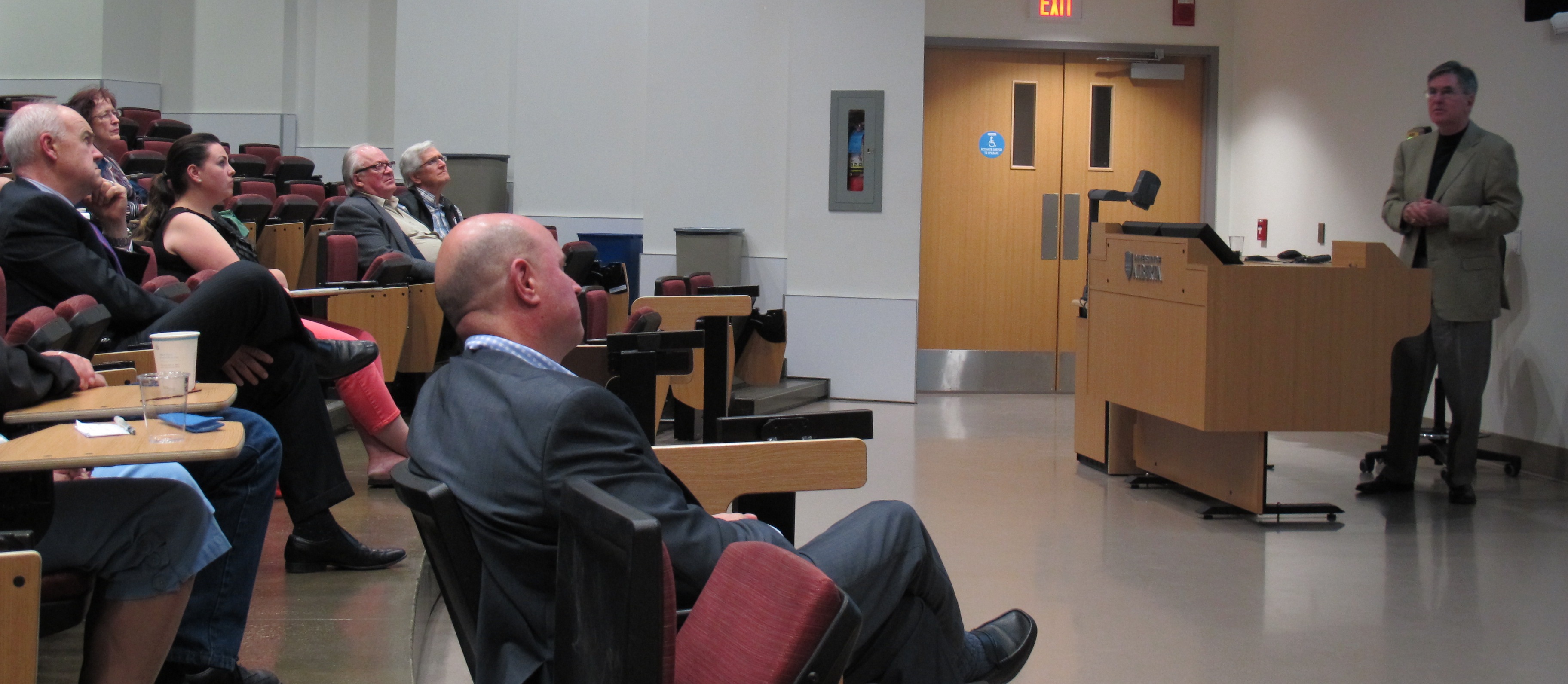
Dean Miller speaks to the audience of Mini Medical School 2013
This week, the Faculty of Medicine & Dentistry opened its doors to the public with the first session of the 2013 Mini Medical School. This annual event allows members of the public the opportunity to hear top Faculty professors speak on some of of the topics medical students study during their undergraduate education. This is the seventh year the Faculty has offered the program.
Like the students of the university's 100th medical school class who were welcomed to campus last week, attendees of the first Mini Medical School session heard opening remarks from Douglas Miller, dean of the Faculty.
In a presentation, entitled The Value of a Medical School (to a City), Miller illustrated the many ways the Faculty advances the City of Edmonton.
Citing a recent review of the medical school's economic impact in Alberta, the dean highlighted several ways the Faculty is directly tied to the province's economy.
"We asked Tripp Umbach to come in and do the math," the dean said of the 2013 report compiled by the consulting firm. "Depending how you calculate it, it's $2 to $4 billion toward the community's economic impact." The University of Alberta's overall impact was estimated at $12 billion in a separate study.
Miller also noted the U of A's pioneering history in transplant medicine and diabetes research. These innovators, including such names as Michael Houghton, James Shapiro and Lori West, are the professors who stand at the front of lecture halls teaching the next generation of doctors, and in many cases, they are also the physicians who are providing your care.
"Our doctors treat your kids and parents. That's important," he added. "When you're the sickest, and your kids are the sickest, you come to the University of Alberta's teaching institute. When you're dying and only a really good doctor can save you, like a transplant surgeon or a trauma surgeon or a pediatric intensive care specialist, you come to a place like this. And if you didn't have a medical school here, you wouldn't have that capability."
In fact, the high quality of educators in the Faculty is one of the reasons the students' union at Cambridge University, the top university in the world, has chosen to highlight the University of Alberta in one of its publications as a top medical school in North America. Not only do these educators teach at the U of A, they also teach internationally, stretching the medical school's impact around the globe.
Miller concluded with the announcement that, in honour of the medical school's 100th birthday, the Faculty would provide its students with more training on the workings of the health-care system. Studies have shown that 55 per cent of medical students in Canada and the United States are dissatisfied with their knowledge of the health system upon graduating.
"We're going to train our students to have the ability to advocate for their patients because they understand the system," he said. "That's what a modern medical school does. That's how you get recognized by people at Cambridge and other places around the world. You do things that reflect your mission as an educational institution, as a public service organization, but you also produce students who know how the world works."